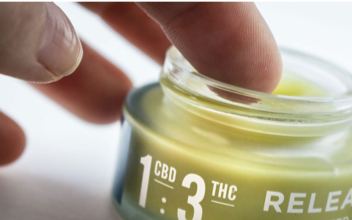Cannabis edibles, topicals and extracts officially became legal on October 17, 2019 and will be available for purchase mid-December. “Edibles” is the umbrella term for cannabis-infused products, which can include beverages, cotton candy, dissolvable strips, gummy candies, baked goods, and concentrates for use in vape pens. And topicals are products which can include lotions, balms, and oils. The approved Regulations limit edibles to 10 milligrams of tetrahydrocannabinol (THC) in a “single-serving”, while concentrates (like vape pens) have a limit of 1,000 milligrams of THC per package. Cannabis topicals, which are absorbed through the skin and generally used for pain relief or inflammation, also have a limit of 1,000 milligrams of THC per package.

Edibles include:
Beverages
Cotton candy
Dissolvable strips
Gummy candies
Baked goods
Concentrates

Topicals include:
Lotions
Balms
Oils
Edibles are typically made with cannabis oils or dried flowers and are an option for consumers looking to avoid inhaling the smoke from joints or pipes. However, the cannabis effects in edibles can be more potent and affect users for longer periods of time. Health Canada warns the latency period after consuming edibles can range from half an hour to four hours before the effect fully kicks in. The experience of eating cannabis is different from smoking or vaporizing it. It can take longer to feel the effects of ingested cannabis. The feeling of euphoria (or “high”) may differ and can last much longer. When eaten, it can take from 30 to 90 minutes for the active ingredient in cannabis to reach the blood and brain and give you the “high”. Effects of smoking or vaporizing cannabis, however, are felt almost immediately.
The THC in edible cannabis is absorbed through the digestive system slowly and unpredictably. The time it takes to feel the effects can vary greatly between individuals. Reasons include the amount of food in the stomach and digestive system, the type of food that was in the system, how quickly each individual’s body processes stomach contents through their digestive system, and differences in how each individual’s liver breaks down food. This makes overconsuming edibles easy. The effects of an excessive dose can create symptoms of panic, paranoia, increased cognitive and motor impairment, severe sedation, agitation, anxiety, cardiac stress and vomiting. High-dose THC can also induce temporary psychotic symptoms such as hallucinations, delusions and extreme anxiety according to Health Canada.
Impairment from edibles can also last longer than impairment from smoked or vaporized cannabis. The effects from inhaled cannabis can start to dissipate in 3 hours while the high from edibles ranges from 12 to more than 24 hours. This means that consuming edible cannabis on personal time may affect the ability to work safely on the job, even if it’s the next day. Anyone who consumes edible cannabis should understand that the effects take longer to feel and last longer, and what the risks of overconsumption are. This is particularly critical for employees in safety-sensitive workplaces.
